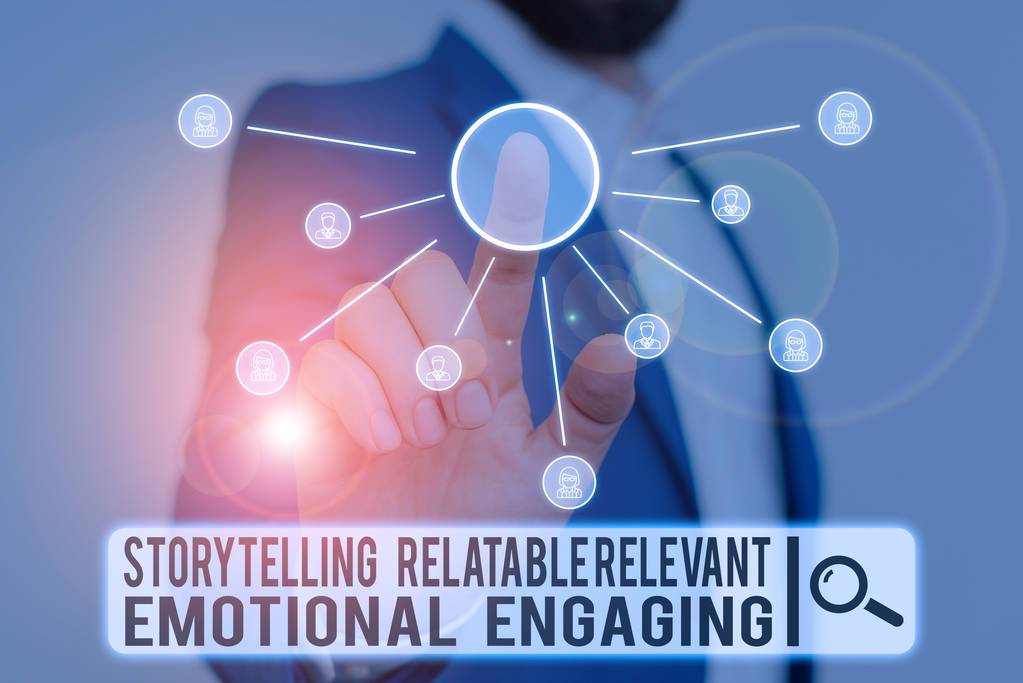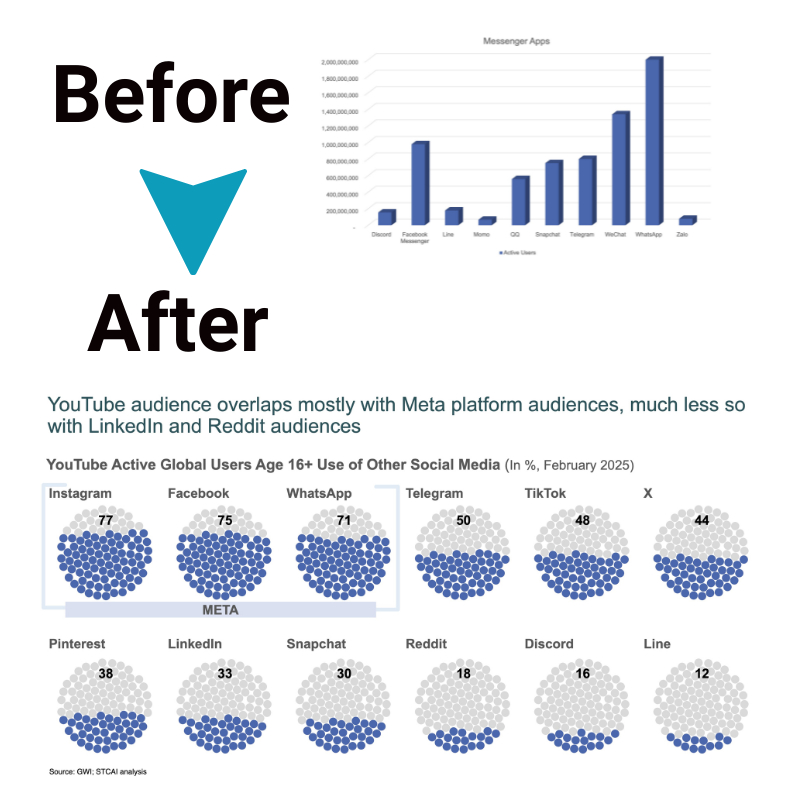The Power of Storytelling: Differentiate, Connect, and Influence

In today’s digital age, where attention spans are fleeting and competition is fierce, businesses strive to capture the hearts and minds of their audience. One powerful tool that has stood the test of time is storytelling. It has the remarkable ability to captivate, engage, and inspire people. In this article, we will explore the immense power of storytelling and how it can help businesses differentiate themselves, forge meaningful connections, and ultimately influence their target audience.
Storytelling has been an integral part of human culture for centuries. From ancient myths and legends to modern-day movies and novels, stories have captivated our imaginations and allowed us to share experiences and knowledge. In the realm of business and marketing, storytelling has emerged as a powerful tool to differentiate brands, connect with audiences, and influence consumer behavior. In this article, we will explore the profound impact of storytelling and how it can be harnessed to achieve marketing success.
Understanding the Power of Storytelling
The Science Behind Storytelling
Stories have a unique effect on our brains. Research has shown that when we engage with a story, our brains release oxytocin, a hormone that enhances trust and empathy. This neurochemical response helps to forge stronger connections between storytellers and listeners or readers. By understanding the science behind storytelling, marketers can leverage this knowledge to craft compelling narratives that resonate with their target audience.
The Emotional Connection
One of the key strengths of storytelling lies in its ability to evoke emotions. Unlike dry facts and statistics, stories have the power to touch people on a deep emotional level. Whether it’s through relatable characters, unexpected plot twists, or heartfelt narratives, stories can create an emotional bond with the audience. By tapping into the emotions of their customers, brands can create a lasting impression and foster a sense of loyalty.
Memorable and Engaging Content
In today’s fast-paced digital world, capturing and maintaining attention is a constant challenge. Storytelling provides a solution by offering content that is memorable and engaging. When information is presented in a narrative format, it becomes easier for the audience to absorb and retain. By using storytelling techniques such as vivid descriptions, suspense, and humor, marketers can create content that stands out from the crowd and leaves a lasting impact.
Differentiating Your Brand Through Storytelling
In a crowded marketplace, where countless brands vying for attention, it is crucial to stand out from the crowd. Storytelling provides a unique opportunity for businesses to differentiate themselves by crafting narratives that resonate with their audience. By infusing their brand’s values, mission, and purpose into a compelling story, businesses can create an emotional connection with their customers. This emotional bond not only sets them apart but also establishes a sense of loyalty and authenticity that is hard to replicate.
When crafting a compelling brand story, it is essential to understand the desires, aspirations, and pain points of the target audience. By addressing these elements through storytelling, businesses can position themselves as the solution to their customers’ needs. This personalized approach helps build trust and establishes a strong brand identity, enabling businesses to carve out a unique space in the market.

Defining Your Unique Brand Story
Every brand has a story to tell, and it’s crucial to define that story in a compelling way. A brand story goes beyond the products or services offered; it encompasses the values, mission, and vision of the company. By clearly articulating what sets your brand apart from the competition, you can create a narrative that resonates with your target audience and helps you stand out in a crowded marketplace.

Showcasing Authenticity and Values
In a world where consumers value authenticity, storytelling provides an opportunity for brands to showcase their true identity. By sharing genuine stories about the people behind the brand, their values, and their commitment to making a difference, companies can establish trust and credibility. Authenticity in storytelling builds a strong emotional connection with customers, fostering brand loyalty and advocacy.

Creating Relatable Characters and Situations
Humans are wired to connect with other humans. By creating relatable characters and situations in your brand storytelling, you can tap into the universal aspects of the human experience. Whether it’s overcoming challenges, pursuing dreams, or experiencing joy, stories that reflect the aspirations and struggles of your target audience will resonate deeply. By placing your customers at the center of the narrative, you can create a sense of empathy and build a stronger connection.
Connecting with Your Audience
The Art of Connecting Through Stories
Human beings are wired to respond to stories. From an early age, we are captivated by tales that transport us to different worlds, evoke emotions, and create a sense of connection. Leveraging the power of storytelling allows businesses to tap into this innate human desire for connection.
When businesses tell stories that resonate with their audience, they create a shared experience, fostering a sense of belonging and community. By sharing authentic narratives that reflect their customers’ journeys, challenges, and triumphs, businesses can foster deeper connections that go beyond transactional relationships. These connections build a loyal customer base and encourage word-of-mouth marketing, as satisfied customers become brand advocate
Understanding Your Target Audience
Effective storytelling begins with a deep understanding of your target audience. By conducting thorough market research and customer analysis, you can gain insights into their needs, desires, and pain points. This knowledge forms the foundation for crafting stories that will resonate with your audience and create a sense of relevance. When your audience feels understood, they are more likely to engage with your brand and become loyal advocates.
Tapping into Emotions and Experiences
Emotions play a significant role in decision-making, and storytelling provides an avenue to tap into those emotions. By aligning your brand story with the values and aspirations of your audience, you can create an emotional connection that goes beyond mere product features. Craft stories that evoke joy, inspiration, or even a sense of nostalgia, drawing upon shared experiences to forge a bond with your customers.
Using Storytelling Across Various Platforms
In today’s digital landscape, brands have numerous platforms at their disposal to tell their stories. From social media to websites, videos, and podcasts, each platform offers a unique opportunity to engage with your audience. Tailor your storytelling approach to fit the medium, whether it’s through visually compelling images, captivating videos, or concise written narratives. Consistency across platforms will help reinforce your brand story and increase its reach.
Influencing through Stories
Inspiring Action and Change
One of the remarkable aspects of storytelling is its ability to inspire action and drive change. By conveying a compelling narrative that addresses a problem or need, brands can motivate their audience to take specific actions. Whether it’s making a purchase, supporting a cause, or adopting a new behavior, stories have the power to influence behavior by appealing to our desires for transformation and growth.
Building Trust and Credibility
Trust is a cornerstone of any successful brand-consumer relationship. Storytelling can help build trust by showcasing the values, integrity, and expertise of your brand. By sharing stories that demonstrate your commitment to delivering exceptional experiences, you can establish credibility and differentiate yourself from competitors. When customers trust your brand, they are more likely to become loyal advocates and recommend your products or services to others.
Leveraging Stories for Marketing Success
Incorporating storytelling into your marketing strategy can yield remarkable results. From increasing brand awareness and engagement to driving conversions and customer loyalty, storytelling has a far-reaching impact on marketing success. By consistently delivering compelling narratives that resonate with your target audience, you can create a distinct brand identity, foster strong connections, and influence consumer behavior.
The Influence of Stories on Decision-Making

Storytelling has a profound influence on decision-making. Research has shown that stories are more persuasive than facts and figures alone. When businesses present information in a narrative format, it engages multiple parts of the brain, making the content more memorable and impactful.
To effectively influence their audience, businesses can leverage storytelling techniques such as:
- Emotionally Compelling Narratives
Crafting stories that evoke emotions is a powerful way to influence decision-making. By appealing to the aspirations, desires, and fears of their audience, businesses can create an emotional connection that motivates action. For example, a company selling eco-friendly products could tell a story that highlights the devastating consequences of environmental degradation, inspiring customers to make sustainable choices. - Social Proof and Success Stories
Human beings are influenced by the experiences of others. By sharing success stories and testimonials, businesses can demonstrate the value and impact of their products or services. These narratives provide social proof, building trust and credibility among potential customers. Incorporating real-life examples and case studies into storytelling helps businesses showcase the tangible benefits their offerings provide. - Visual Storytelling
In a visually-oriented world, incorporating compelling visuals into storytelling can significantly enhance its impact. Visual elements such as images, infographics, and videos can effectively convey complex information and evoke emotions. A well-designed diagram, for instance, can visualize the benefits of a product or illustrate a step-by-step process, making it easier for the audience to understand and engage with the content.
Conclusion
Storytelling possesses an incredible power to differentiate businesses, forge deep connections, and influence decision-making. By understanding the science behind storytelling, crafting unique brand stories, and tapping into the emotions and experiences of your audience, you can create a lasting impact. Crafting compelling narratives that align with their brand values and resonate with their audience, businesses can rise above the noise, cultivate loyal customers, and inspire action. In a digital landscape where content is abundant, the art of storytelling can be the key to achieving remarkable success. Embrace the power of storytelling, and unlock a world of endless possibilities.
FAQs
- How do I craft a compelling brand story?
Crafting a compelling brand story begins with understanding your audience and identifying what sets your brand apart. Define your brand’s values, mission, and vision, and find ways to showcase authenticity and relatability through relatable characters and situations. Use storytelling techniques such as vivid descriptions, suspense, and humor to engage your audience. - What platforms should I use to tell my brand story?
The choice of platforms depends on your target audience and the nature of your brand. Social media platforms, websites, videos, and podcasts are popular options. Tailor your storytelling approach to fit each platform and maintain consistency across all channels to reinforce your brand story. - How can storytelling influence consumer behavior?
Storytelling influences consumer behavior by creating an emotional connection, inspiring action, and building trust. Compelling narratives that address consumer needs and aspirations can motivate them to take specific actions, such as making a purchase or supporting a cause. Building trust through storytelling establishes credibility and fosters loyalty. - Can storytelling be used for B2B marketing?
Absolutely! Storytelling is equally effective in B2B marketing. While the target audience may be different, the principles of crafting compelling narratives that resonate with emotions and values remain the same. B2B storytelling can focus on showcasing the benefits and impact of your products or services in solving business challenges and driving success. - How can I measure the effectiveness of my brand storytelling?
Measuring the effectiveness of brand storytelling can be done through various metrics, including engagement rates, conversion rates, brand awareness, customer satisfaction, and brand advocacy. Track key performance indicators specific to your marketing goals and analyze the impact of storytelling on these metrics to gauge effectiveness.
Get Access Now: storytellingwithcharts.com








